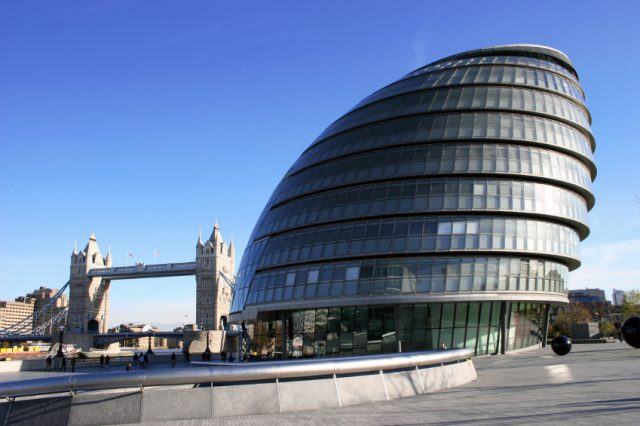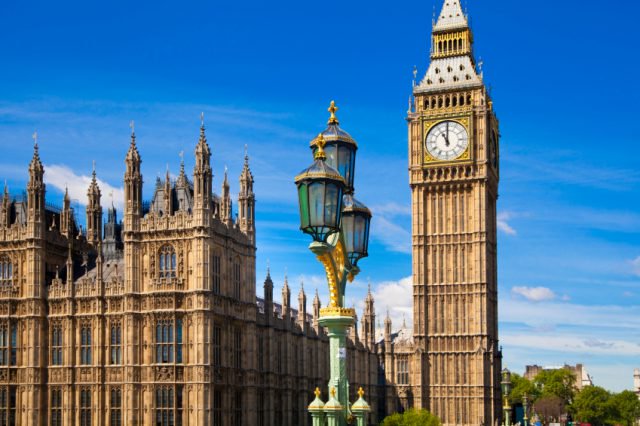Which London Mayor Candidate is Best for the Housing Market?
As the race to become the next Mayor of London heats up, online estate agent eMoov has released its study into what each candidate will mean for the housing market.
On 5th May, Londoners will vote for their next mayor. With the current mayor, Boris Johnson, choosing not to run, the race is down to Labour candidate Sadiq Khan and Conservative Zac Goldsmith, the two front runners.
eMoov has analysed the two parties’ housing pledges:
Conservative
- To build 50,000 new homes by 2020.
- To give Londoners that have lived and worked in the capital for over three years the first chance to buy new properties built on Transport for London-owned land.
Labour
- To introduce the Homes for London scheme, working with City Hall, local councils and property developers to address the housing shortage.
- To help existing London homeowners by improving energy efficiency, helping with service charges and the renewal of existing leases.
At present, London is experiencing a chronic shortage of housing supply, causing the huge amount of aspiring homeowners hoping to get on the property ladder to be forced into the private rental sector.

Which London Mayor Candidate is Best for the Housing Market?
eMoov has found that historically, a Labour mayor has led an almost continuously increasing level of property construction in the capital. Between 2001 and 2008, there was a rise in housing stock of 186,000 homes under a Labour mayor.
However, under a Conservative mayor between 2008 and 2014, the level of housing stock dropped significantly, with just 152,000 new properties being built.
With London house prices continuing to spiral beyond the reach of hopeful buyers, a reduction in demand by way of a growth in supply will go some way to cool the London housing crisis, helping those desperate to buy.
For those already on the property ladder, the value of their property will be their primary concern ahead of the election.
During Labour’s Ken Livingstone’s eight years as mayor, there were four occasions between 2002-05 when house prices in London rose at a lower rate than the rest of the UK. Up until 2008, when Johnson was elected, London house prices grew by 89%. However, the UK average was a huge 113% – bucking the trend of the capital driving the national housing market.
Under the Conservative mayor, however, there were six years in which London surpassed the rest of the UK. With Johnson as mayor, prices rose by 41% between 2008-15, compared to 30% nationally. Values in half of UK towns and cities are said to still be below the peaks seen before the financial crash.
eMoov concludes that under Labour, house prices increased at a faster rate, but failed to outperform the rest of the UK, while the Conservatives oversaw a slower pace of growth, but the London market exceeded the rest of the UK.
The CEO of eMoov, Russell Quirk, comments: “It’s always hard to pick a side when we, the UK public, are subjected to the onslaught of smoke and mirrors deployed in the run up to an election. We’ve seen the monumental failure of the Help to Buy scheme over recent years, which was supposed to be the answer to our first time buyer woes, so it’s always hard to decide which candidate to trust.
“However, historic data doesn’t lie and so this research shows it’s pretty clear cut on who to vote for, depending on whether you’re an aspiring or existing London homeowner.”
He explains: “Yes, Boris and the Conservatives have generally seen London property values increase at a higher rate than the UK, but one might argue that having inherited a pretty raw deal in 2008 after the market crashed, the only way for things to go were up. As the capital and crown in the UK market, London was always going to see a healthier rate of growth than the rest of the UK, as the market found its feet again.
“But on the face of it, if you do own a London property, a Conservative mayor is going to be better for you in terms of your property price, so a vote for Goldsmith is probably the way to go.
“However, the capital is in the tight clutches of a housing deficit at present. I’ve highlighted time and time again that the lack of London supply is fuelling a dangerously artificial bubble in the capital. It’s only a matter of time before it pops again. Therefore, Labour’s superior record where building is concerned will not only help stabilise the market but will also help cool prices and give aspirational homeowners in the capital a better chance of getting on the first rung.”
Who do you think should win the race?








